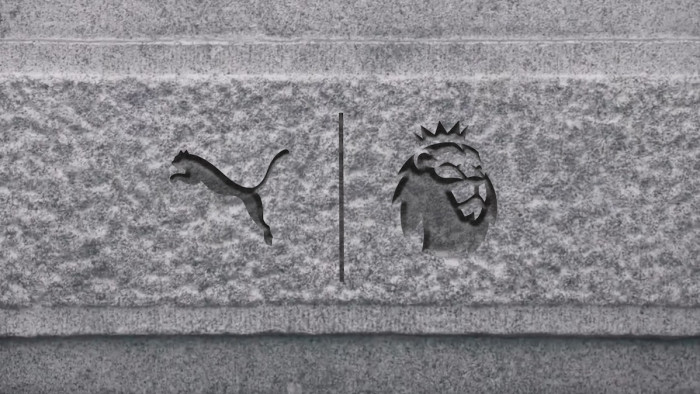The FA is going to sell Wembley for £800m - what does this mean?
The national stadium is set to be sold in a shock deal


The FA are believed to be ready to sell Wembley Stadium, the jewel in the crown of world football, to billionaire American Shahid Khan, for an £800m. The new stadium was only opened in 2007 after a torturous and expensive building process, following the demolition of the famous old ground which had stood for almost 80 years and, famously, witnessed England’s only World Cup victory in 1966.
The move has come as a shock to most seasoned observers, with a lot of questions to be answered. So, without further ado: let’s answer them.
Who wants to buy it, and why?
The bidder is Shahid Khan, worth £5.2bn, who is owner of Championship side Fulham but also, crucially, the NFL franchise Jacksonville Jaguars.
He wants to buy the stadium and install a permanent NFL team in London, and is prepared to pay £800m, with a huge £500m up front. The Jaguars are ideally placed to become that team, having played a regular season game in London every year since 2013 - all of them at Wembley.

Shahid Khan watching Fulham in 2017
Does this mean that the Jaguars are definitely coming to London?
No. This appears to be a calculated gamble on Khan’s part. The NFL appears determined to establish a permanent London franchise - but it wouldn’t automatically be Khan’s Jaguars who would get it. For example, the Buffalo Bills might decide that they’d like to go for it, or Manchester United owners The Glazers might decide that the time is right to relocate their Tampa Bay Buccaneers franchise.
An NFL source told the Independent that “other teams have been sniffing” and that Khan’s Wembley bid may have been put in “simply so no other team could put together a proposal to go there.”
Wembley stadium has hosted 18 NFL games since opening in 2007, with the lowest attendance being 77,000 - so the market is clearly there.
Where does this leave Spurs and their new stadium?
It’s a big headache for Spurs owner Daniel Levy. He signed a deal in 2015 for the new White Hart Lane to host two NFL matches a season for ten years, beginning with the Seattle Seahawks against the Oakland Raiders on 14 October 2018. The stadium has been designed with NFL in mind, with the long-term plan for Spurs to eventually host any permanent London franchise. The current deal is estimated to be netting them £15m - not much when put alongside the £1bn costs - but had this led to a permanent franchise, it would have been worth much more. Now, though, they’ve got competition.
However, the NFL has hinted that a London franchise could split its games between Spurs and Wembley. A statement said: “Having stadium options in London has always been critical to the NFL and, in tandem with our 10-year partnership with Tottenham Hotspur, this new relationship would allow for even greater flexibility in scheduling future NFL games in London.”

The Jacksonville Jaguars take on the Baltimore Ravens at Wembley in September 2017
Why is the FA selling? Didn’t they just build it?
It certainly seems a strange decision at first glance, given the huge cost of building Wembley - £757m - and the lengthy process it took of convincing people of the need for a national stadium in the first place (Spain, for example, do not have a national stadium, and they’ve done pretty well of late…) and of then subsequently convincing people that it needed to be in London.
However, firstly, the cost has nearly been paid off - in January it was revealed that £142m of debt remained, and that that would be paid off by 2024. The Khan deal would pay off the final segment of money and leave a huge amount left over.
Meanwhile, the national stadium was built with the idea of attracting the World Cup - this is now a dim and distant possibility given the disastrous bid for the 2018 tournament, which went to Russia. The next World Cup is not expected to be played in Europe until 2030 at the earliest and, besides, with Wembley now existing, it could still obviously be used for games.
It is expected that the FA could use the spare £500-600m to invest in grassroots football in a big way. On the other hand, with Wembley proving to be a profitable venue, they would lose out on that constant stream of profit.
However, given that that profit was £7m in the year ending July 2016, it would take them a very long time to make as much as £500m from owning and running the stadium.
What happens to England games now?
It is expected that the stadium would be used for NFL between September and January. So this would mean England going on the road for at least those dates each year, as they did during the four years it took to build the new Wembley back between 2003 and 2007.
However, with an ‘amicable’ deal expected to be reached between Khan and the FA, it is likely that England would still play some matches there, albeit they would have to pay for the privilege.
Khan said: “Our commitment to the FA is we will own and operate Wembley with the care and respect it deserves, always being mindful that it is – and will continue to be – the home of England’s national teams as well as the ultimate destination for the world’s top entertainment and sports events, including Jaguars and NFL games.”
Nonetheless, with so many other great stadiums available across the UK, the England team will not be short of teams willing to host their games.

David Beckham famously scored a free-kick against Greece in 2001, to send England to the 2002 World Cup, in a game played at Old Trafford while Wembley was being built
Weren’t Chelsea supposed to be playing at Wembley soon?
Yes, and this plan could be affected. Stamford Bridge is due to be demolished and rebuilt in 2021 and Chelsea had been planning to play a season at Wembley, as Spurs have done this season. That course of action could now be in doubt, should it run into conflict with any NFL plans.
What about other events like the FA Cup?
It is expected that all major finals - the FA Cup, the League Cup and the Play-offs would continue to be played at Wembley as normal. However, the FA Cup semi-finals could finally return to neutral grounds, having been played at Wembley since 2008 as part of the FA’s attempts to maximise income on the stadium.
So, overall, is this a good or a bad thing?
Different people will have different opinions but, potentially, this is a positive development.
The FA will be free of the debt that has plagued it for a decade, it will suddenly have a huge amount of money to invest in the grassroots game - potentially hundreds of 3G and 4G pitches and other facilities - the England team can revitalise its relationship with the nation’s fans by travelling around the country, the FA Cup semi-finals can return to the fun of neutral grounds - and Londoners will have a brand new NFL team to watch regularly. Meanwhile, England can still bid for tournaments, and Wembley will continue to be used for football.
However, if you’re a Spurs or Chelsea fan - it’s probably more bad than good news.
(Images: Getty)
Latest
Related Reviews and Shortlists









